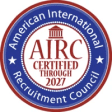- Call us!
- Contact Us!
- Get A Quote
- Take A Free Test
- Apply Now!
Learn English at ELS
Changing Lives through Language

Learning English
in the USA
Since 1961, ELS has supported 1.2 million students from 143 countries to master English quickly and effectively. Our aim is to equip you for success in the global workplace. We specialize in delivering high-quality English training in the USA, through an immersion learning experience. Over 600 colleges recognize our level 109 or 112 certifications for language entry.
At ELS, you'll benefit from an authentic American university experience, complete with on-campus locations and access to partner university facilities. Enroll with us to enhance your English proficiency and discover a life-changing American learning adventure!

Learn English on a
University Campus
ELS has Language Centers located on the campuses of Colleges and Universities across the United States. Study English with ELS and you'll enjoy a unique American student experience with the opportunity to meet and connect with local college and university students while you take advantage of shared campus facilities, like student lounges, cafeterias, computer labs, and more!
Find the right English Program!

Intensive English
Our most complete English learning experience, designed to develop your language proficiency to support success in English-speaking higher education, business, or in any activity where you need to speak English well. Choose this program if you plan to attend one of the 600+ colleges that recognize ELS level 109 or 112 for language entry.

Semi-Intensive English
Make English language development a priority while still leaving plenty of time to discover local culture and activities. Enjoy four daily English lessons designed to quickly improve your English communication skills. Outside the classroom, connect with locals and discover the attractions in your USA study city.

American Explorer
The American Explorer Program offers a casual English learning experience while providing plenty of free time for local discovery and American cultural immersion. Designed for the curious explorer, this relaxed study program will help you improve your English to enrich a short-term study adventure.

Fun and Sun Camp Program
ELS’s Fun & Sun Camp Program offers an amazing American learning adventure for kids and teens age 10-17. Combine English classes with fun activities and excursions in and around St. Petersburg while you live on campus at Eckerd College. This year includes a Marine Biology experience as part of the program.

English for Executives

Super Intensive English Program

ELS 2 + 2 Program

College Year Program

Online Programs
University Admissions Service
ELS is your English study pathway into college or university in the USA! We can help you secure Conditional Admission into 40+ ELS college and university partners before you’re mastered English! Find out how:
Why Choose ELS?
Studying on an American university campus provides an English-speaking environment that accelerates your language acquisition due to constant exposure, leading to quicker and more effective learning and comprehension.
UNIVERSITY RESOURCES
University resources, such as libraries, technology, sports facilities, and student clubs are available to students and enhance the learning experience beyond language skills.
INTEGRATION
Studying on a US campus offers a chance to experience American culture, participate in events, make diverse friends, and understand US social and academic traditions.
OPPORTUNITIES
Being on a university campus can provide pathways to further education. Students can choose to transition into a degree program at the same university, or at one of ELS's 600+ partner schools in the USA.
CAREER ADVANCEMENT
Being part of a university community provides networking opportunities with faculty, students, and alumni, supporting future career prospects and global opportunities.
AWARDS
ELS is the three-time winner of the ST Star Chain School Award. ELS took home this prestigious, industry-voted award in 2019 and 2022. In 2023, ELS and ILSC Education Group jointly won the Star Chain School Award together.
Discover the perfect ELS City
Learn English in the USA at one of our amazing destinations.
Accreditation & Memberships
ELS Language Centers is accredited by ACCET and holds membership in key industry organizations.





What Our Students
Say About Us

This ELS experience really changed my view of the world
The system of study is a really good because we communicate, we learn a lot of new information. We have very, very good teachers. They are always open for questions. At this school you have a unique opportunity to meet people from different countries. This gives us the opportunity to enrich yourself by other cultures.
Uliana, Ukraine / ELS Philadelphia

The best thing you can do is try it!
During my time here I met international friends from Korea, Japan, Brazil, even American. All of them are so friendly because they have the same mindset to make friends to share our culture. If you are thinking about studying in America and you want to learn a new language the only way you can do it is to be in that country where they speak that language.
Jeyson, Colombia / ELS Los Angeles County
Study in Canada or Australia



Want to go beyond the US? Learn English in Canada or Australia with our partner school, ILSC. Whether you're dreaming of studying and working by Australia's beaches, or looking for high energy adventures in stunning Canadian landscapes - we have a study abroad option to take you further.












